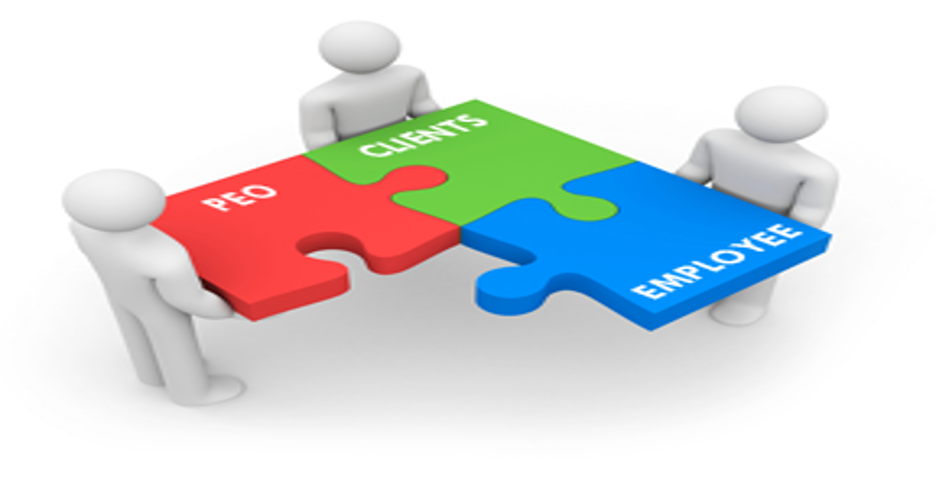
The pros and cons of engaging Employee Management Services or PEO for small business and the “Department of One”
Many small businesses are turning to employee management services or professional employer organizations (PEO) for help to manage their workforce. [Information on Pivotal’s Employee Management Services and PEO>>]
While hiring a PEO offers a wide range of benefits for small businesses — especially with “departments of one” (DOOs) — this employee management service model is not right for all companies.
Pros of Engaging PEOs
Jessica Page, an HR “Department of One” at Calsoft Systems in California, acknowledges the many benefits of PEOs.[1] As the only HR professional at her company, PEO is the reason “we can have a department of one,” she says. Ruth Sokol, HR manager at Harmony Healthcare IT, also agrees that PEOs are highly valued by departments of one. “From personnel issues to compliance, benefits, and taxes,” Sokol appreciates all that PEO partnership has offered her department of one.
Apart from payroll and benefits administration, PEOs also handle employee training, cross-level regulatory changes, performance management, and talent acquisition.
Is a PEO right for your small business or “department of one?” Contact the experts at Pivotal Solutions for advice>>
Small businesses hire PEOs to mitigate compliance risk. PEOs try to ensure you’re compliant. Delegating these operation-critical functions to PEOs can minimize worry for HR and business owners about compliance, workload, and so on. Page noted that businesses can only enjoy these benefits if they hire PEOs who are up-to-date on regulations.
PEOs can also enhance the productivity of your “department of one”, providing much greater flexibility and bandwidth. With a PEO doing all the heavy lifting, HR you will gain more time for other tasks such as interviewing candidates.
Cons of Engaging PEOs
All companies will not enjoy the benefits of hiring PEOs since this employee management service isn’t for everyone. For starters, PEOs and their customers share responsibilities as co-employers. Under the concept of “co-employment,” PEOs can manage administrative functions directly and take over employer-related tasks like employment taxes and payroll.

Delegating sensitive duties to the PEO is problematic for some companies because it introduces a third party in the employee-employer relationship. Some employees are not comfortable with the idea of handing over the management of their affairs to a third party. “It seems emotionally cold and socially distant,” said Williams. This also applies to the outsourcing of the vetting of job applicants
Sokol notes, “PEO isn’t a one-size-fits-all for every organization… can be a communication bottleneck.” Some may hold up information and impede direct communication between HR and critical players like insurance carriers. Just like any other company, PEOs also have their own internal operational and workforce issues that can impact their customers.

Addressing the Cons of Engaging PEOs
Employee-focused research should drive PEO hiring decisions. Before hiring a PEO, it is good to consult your employees and take their thoughts into consideration.
While some companies hire PEOs to save money, they can end up unhappy — if they didn’t go into it for the right reasons. The lack of understanding and clarity in expectations undermines the relationship between companies and their PEOs. Expectations can be managed by looking at the pain points created by your current systems and processes. You can make a list of problems that the PEO will solve to visualize expectations and then decide whether to hire or not.
Are you unsure if the pros outweigh the cons in your case? Consult with the experts at Pivotal HR Solutions:
HR ASSESSMENT FORM
NOTES
[1] Cited from SHRM.


 Our HR solutions experts can recommend the right mix of HR outsourced services to make your entry into Canada easier.
Our HR solutions experts can recommend the right mix of HR outsourced services to make your entry into Canada easier.  Pivotal Employment Management Services co-hires your workforce, simplifying entry of your business in Canada.
Pivotal Employment Management Services co-hires your workforce, simplifying entry of your business in Canada. 















